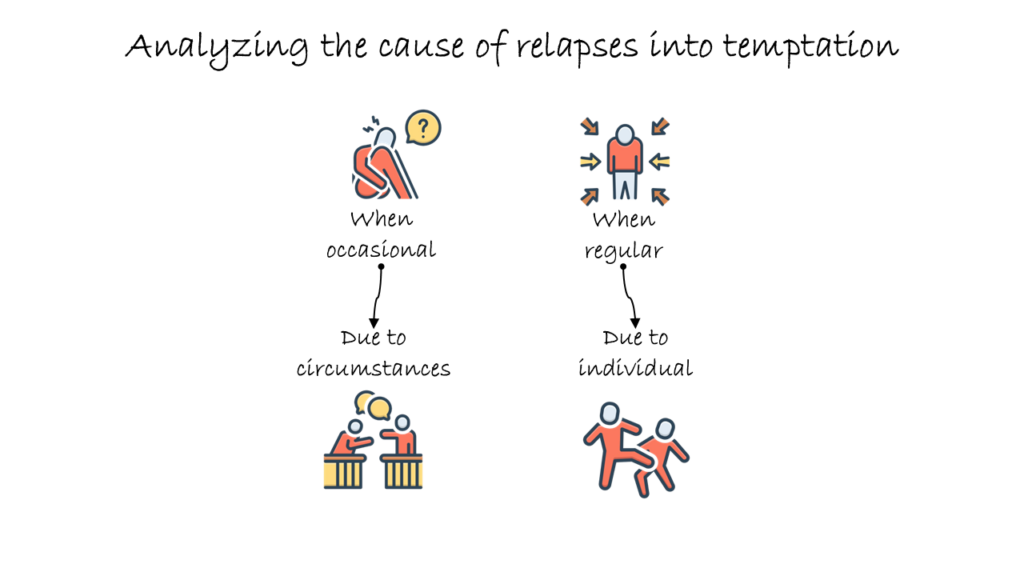
Suppose a person were caught by the traffic police for speeding. If it was the first time that person was apprehended and they claimed that they were new to that locality and hadn’t noticed the speed limit, such an explanation might be believable. Their ignorance might be accepted by the officer, who might let them off with a warning. However, if the person were caught repeatedly speeding, especially in the same area, the explanation of ignorance would no longer work.
In such cases, the officer would have to consider other explanations, such as negligence or arrogance. The driver might be so distracted or reckless as to neglect the traffic rules, knowingly or unknowingly. Worse still, they might be arrogant, believing they are above the law or clever enough to outsmart the police. Such a driver would then face fines for their repeated offenses.
A similar pattern can apply to our predicament when we repeatedly fall to the same temptation in similar situations. If we are unaware of our specific weaknesses or that a particular temptation is especially prominent in certain situations, succumbing to that temptation might be excusable due to ignorance. For example, if a diabetic person with a strong attachment to sweets stays in a hotel room where the fridge is stocked with sweets and ends up indulging, their lapse could be excused on the grounds of ignorance.
However, if they repeatedly book rooms in the same hotel or similar hotels with such temptations readily available, their relapses would stem from negligence—they are not taking the danger seriously—or arrogance, where they overestimate their ability to resist temptation. In such situations, they must be held accountable and create proper boundaries to protect themselves.
The Bhagavad-Gita (3.41) emphasizes that the first step to overcoming temptation is regulating the senses. This often necessitates setting and enforcing boundaries to shield ourselves from the temptations to which we are particularly vulnerable.
Summary:
- Occasional lapses into temptation due to ignorance might be excusable, but repeated relapses indicate negligence or arrogance.
- Repeated relapses require accountability and the establishment of firm boundaries to protect oneself from recurring temptations.
- The Bhagavad-Gita underscores the importance of regulating the senses and creating boundaries to safeguard against vulnerabilities.
Think it over:
- Contemplate any recent relapse into temptation and analyze whether it was caused by ignorance.
- If relapses are frequent, analyze their likely cause beyond ignorance.
- Consider what boundaries you can enforce and how to protect yourself from repeated lapses.
***
03.41 Therefore, O Arjuna, best of the Bhāratas, in the very beginning curb this great symbol of sin [lust] by regulating the senses, and slay this destroyer of knowledge and self-realization.


Leave A Comment